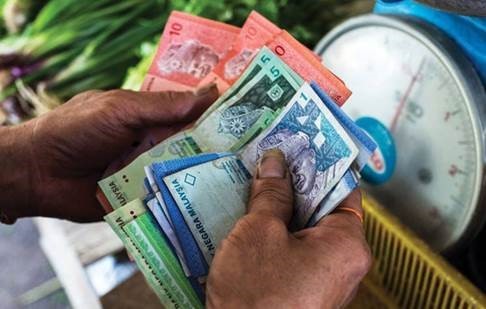
Image credit: The Edge Markets
PETALING JAYA: Employers are asking for more time before the new RM1,500 minimum wage is implemented from May 1, claiming that they have been caught off-guard by the announcement.
They are also calling for the new wage to be implemented gradually, saying that any drastic increase may lead to a rise in the price of goods and services.
Appealing to the government to reconsider its decision to immediately increase the minimum wage come May 1, Federation of Malaysian Manufacturers (FMM) president Tan Sri Soh Thian Lai said it should instead take the progressive increment approach.
“Based on the findings of the FMM-Malaysian Institute of Economic Research Business Conditions Survey for the second half of 2021, a majority of the respondents are of the opinion that a RM100 increase in the minimum wage is an acceptable rate given the current economic conditions.
“FMM has proposed to the government for the minimum wage adjustment to be implemented gradually with a RM100 increase in the third quarter of 2022 and a subsequent adjustment in 2023/2024 to reach RM1,500,” he said.
The survey was conducted between Jan 5 and Feb 10 this year.
He said the increase from the current minimum wage of RM1,200 to RM1,500 represented an immediate increase of 25% on the basic salary, which would then have a knock-on effect on the overall payroll cost as well as spiralling impact on business cost that could potentially derail businesses and economic recovery.
Soh said FMM strongly felt that a more gradual increase in the wage rate would still be able to address the increase in the cost of living, which was a result of the pandemic and the supply disruptions that had ensued.
“Employers continue to plan for salary increments in 2022 and this would further address the cost of living pressure,” he said in a statement reported by Bernama yesterday.
Associated Chinese Chambers of Commerce and Industry of Malaysia SMEs (small and medium enterprises) committee chairman Koong Lin Loong said it was earlier announced that the new rate would only be implemented before the year-end, adding that consultation with stakeholders was still ongoing.“I would rather have a gradual increase in minimum wage,” he said, adding that the move would also result in an “uneven bad cycle” in the business landscape.
“For example, we know that some SMEs cannot afford to pay RM1,500 so their workers will jump to larger companies,” he said, pointing out that labour-intensive businesses would be the most affected.
Koong said the RM1,500 rate for foreign workers would be acceptable if this also included expenses such as accommodation.
SME Association of Malaysia president Ding Hong Sing said most Malaysians were already earning more than the minimum wage of RM1,500.
“Those who will benefit from the new rate are foreign workers, so I hope the government will have foreign workers bear their own levy payment and for RM200 to be deducted from the accommodation fees,” he said.
Restaurant and Bistro Owners Association vice-president Jeremy Lim said it would have “appreciated” more lead time and an in-depth study on the pay scale in urban and rural areas.
He said while RM1,500 would not be a problem for food and beverage outlets in urban areas, this might pose a problem for businesses operating at a smaller scale in rural areas.
“I’m sure this will impact some of the businesses’ cost base and to be viable, they may have to pass on the increase to the consumer, leading to further price increases,” he said, adding that most of its members were located in urban areas and had already reached the minimum salary requirement of RM1,500 for their workers.
“But as always, we continue to advocate for industry engagement and sharing of policy details before they are announced,” he added.
Source: https://www.thestar.com.my/news/nation/2022/03/21/slow-and-steady-rise-helps

